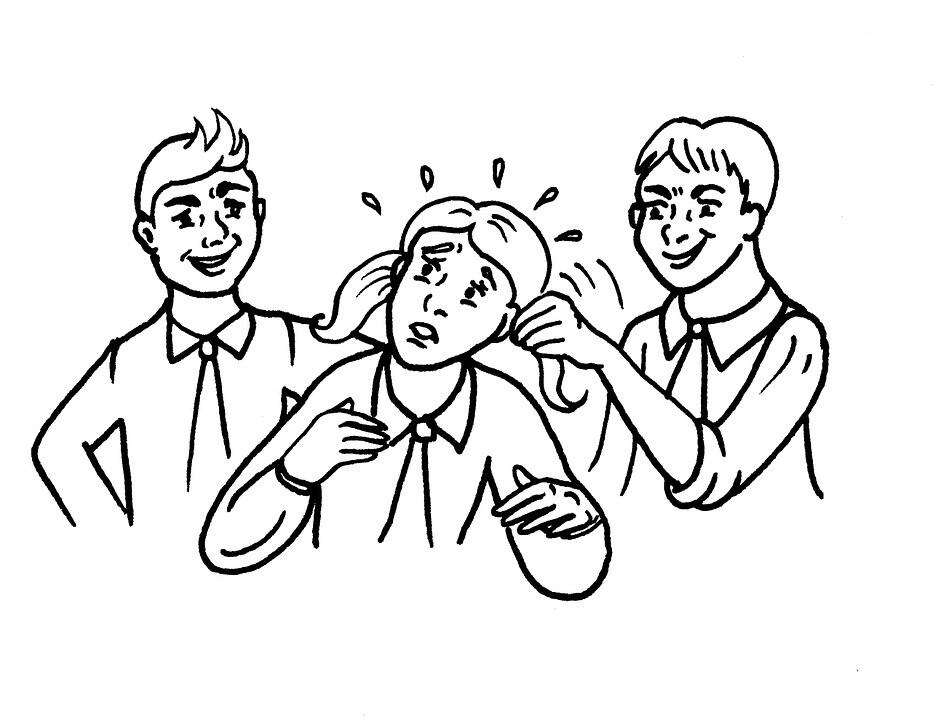How to deal with bullies in your child’s school


Bullying is something that each of us might have come across during the years at school and the terror revisits us as parents too, when our offspring faces it. Combating the menace as parents can be as challenging as it was then.
Dealing with the issue is of vital importance as it can have an adverse impact on the child’s personality, which develops during those formative years at school. Children who are subjected to it can suffer not only physically but also be emotionally scarred for life. Bullying can range from anything between verbal and physical, from teasing to threatening, calling names, hitting, biting and kicking. Even isolating a child intentionally can be categorized as bullying, as a group rejects a child socially and makes her feel left out.
It is surprising that some children as young as 6-8 years of age can target the less aggressive ones around them. This makes it all the more important for parents to be aware of the fact that their child is being bullied at school and take action to help them out.
Children bully because they want to be in control, something which can happen not only with teenagers but with younger children too. The physically stronger ones are more likely to use their force to coerce the weaker ones. Another reason of aggressive behavior is the impact of violent entertainment shows, films and even, video games that children might try to emulate.
Some come from families where verbal abuse is common and they try to imitate the behavior outside too. The bully might be in as much problem as the victim and both of them actually need help. This is one parenting challenge which you have to handle with care.
Identifying the problem
While some children may open up with the parents about the problems they face at school, others may just keep quiet (they might do it because bullying has affected their self-confidence or they fear the bully). You may notice subtle behavioral changes in the tormented child or he may keep looking for excuses to skip school.
There could also be signs of some visible injuries such as telltale bruises which the child fails to account for. There is a need to be watchful because bullying can take serious toll if not identified and rectified in time. If you notice anything amiss, talk to the child in a friendly and sympathetic manner. You may even share your experiences as a child to help the child identify with the same and come out to discuss the problem honestly.
Some kids may simply not open up, so parents need to make efforts to find out more by talking to their friends, classmates and school authorities.
Coping up as a parent
As a parent, it is important to realize the gravity of the situation, whether the child is speaking up or not. Some parents tend to ignore the issue or leave it for the child to sort out, but the result may be agonizing for the child, who may feel abandoned.
Let the child know that you are by his side against all odds and would support him through the same. Comfort the child that there is nothing to be embarrassed about being bullied and there is nothing he has done wring to deserve this. Don’t urge the child to fight back because the thought might actually scare him. Involve the child’s friends and school authorities as you seek solution to the issue. Approaching the bullies’ parents through the school authorities is a good idea if things seem to be getting out of hand.
There is even some community law to help parents and children who are facing adverse forms of bullying where safety might be compromised. At the same time, it is important to boost the child’s self-esteem and confidence, by emphasizing that it is the bully who is doing wrong and deserves punishment. You should encourage the child to speak up whenever a situation comes up; talking to teachers is the solution that he can resort to for immediate help.
Educate the child to ignore the bully rather than react to his behavior because this may discourage him from causing trouble in the future. Make him aware of dealing with tough calls, such as keeping a friend with him all the time or talking to a teacher or an adult when something wrong happens at school.
As a parent, you should take the threat of bullying seriously, whether the child talks about it or you suspect something happening without your knowledge. Children have been seen to suffer from depression and even resort to something as drastic as suicide in cases the harassment has gone beyond limits.
Finally, if your child has been a victim of bullying at school, the solution does not end with dealing with the bully but you need to restore the child’s lost confidence. Let the child spend time with good friends and participate in activities he enjoys, so that he regains a sense of self-esteem.
.jpg)